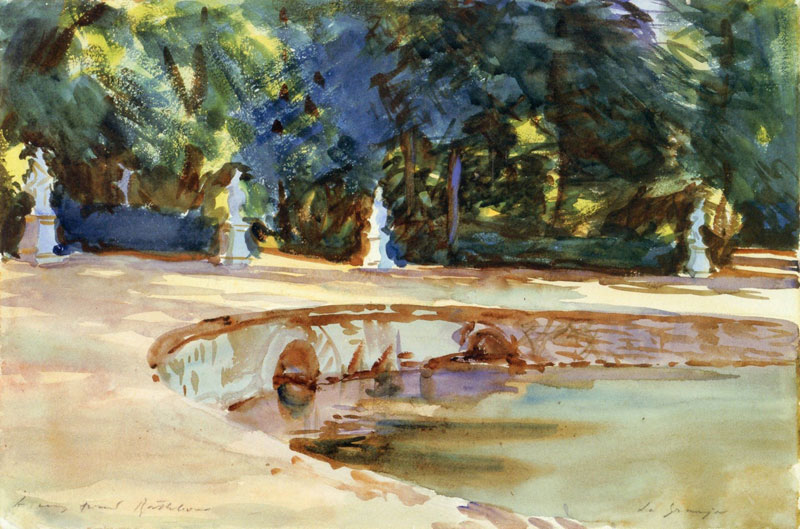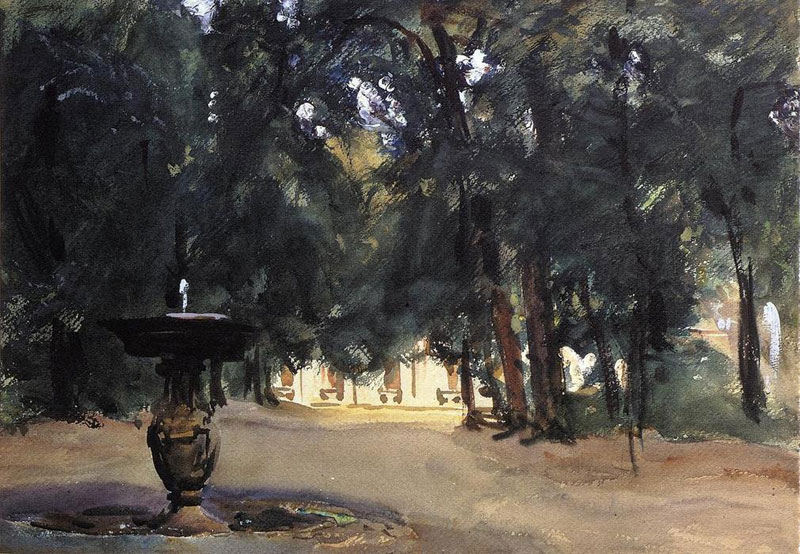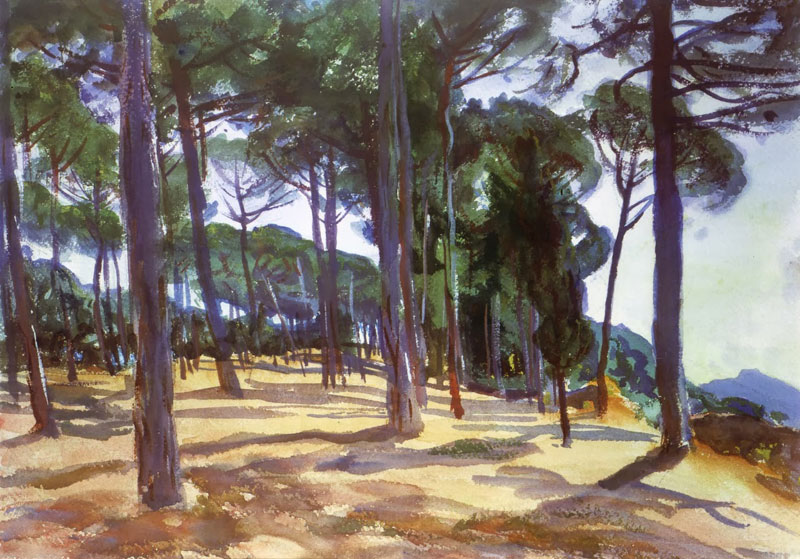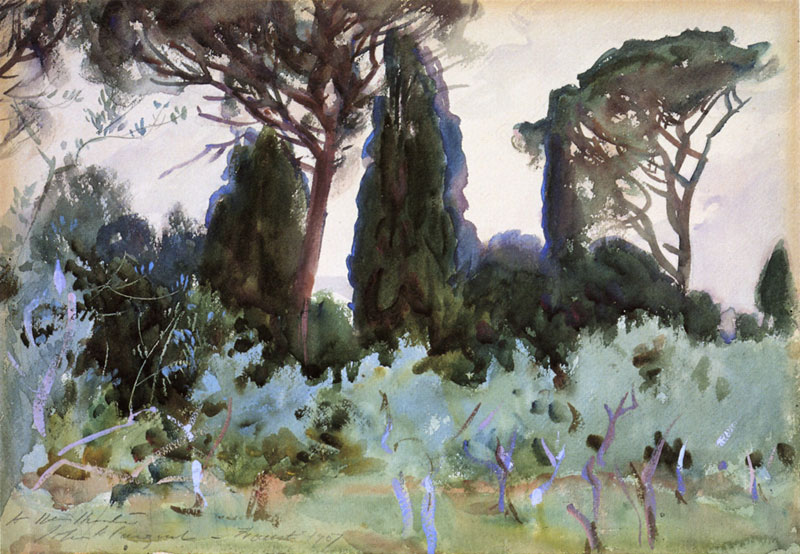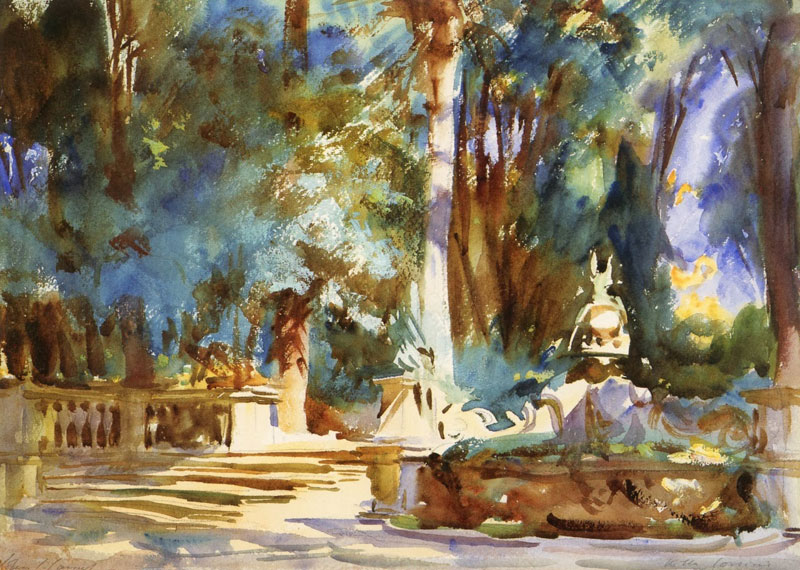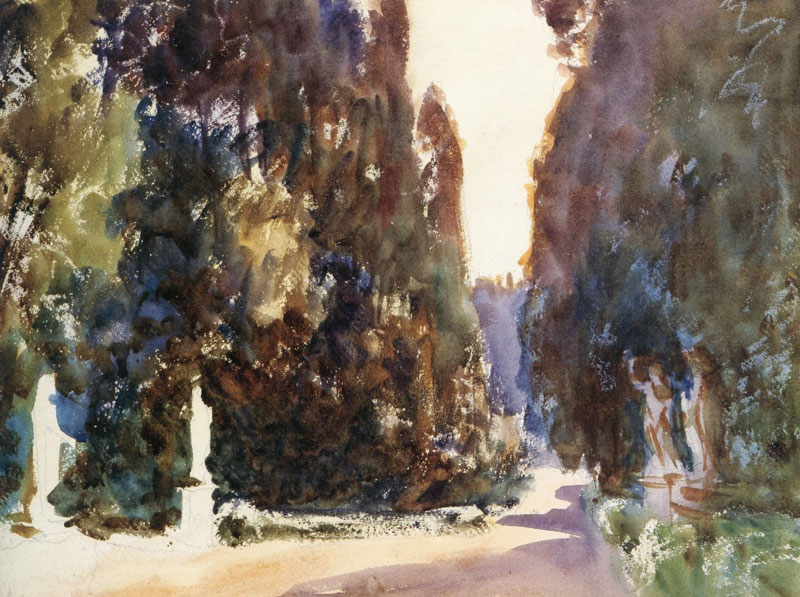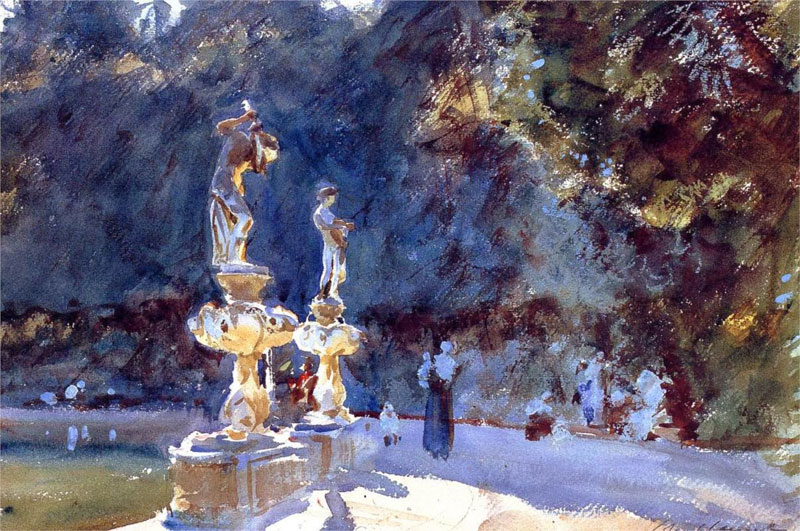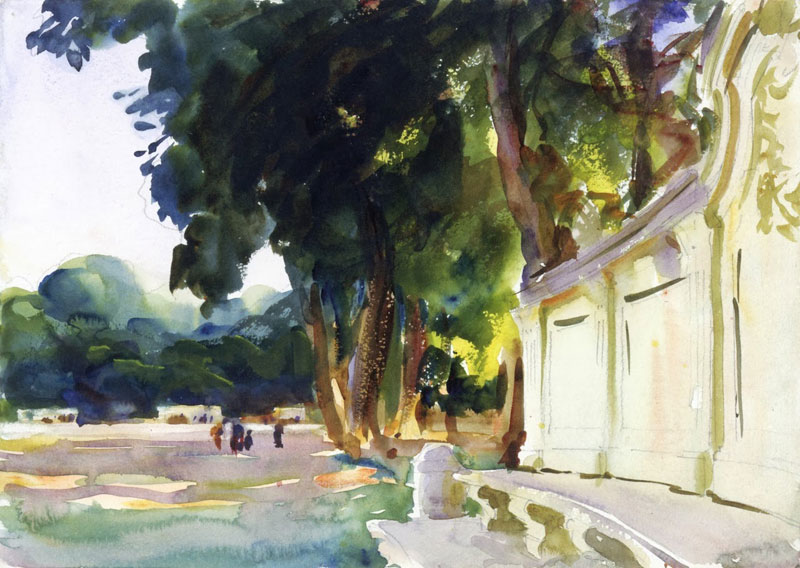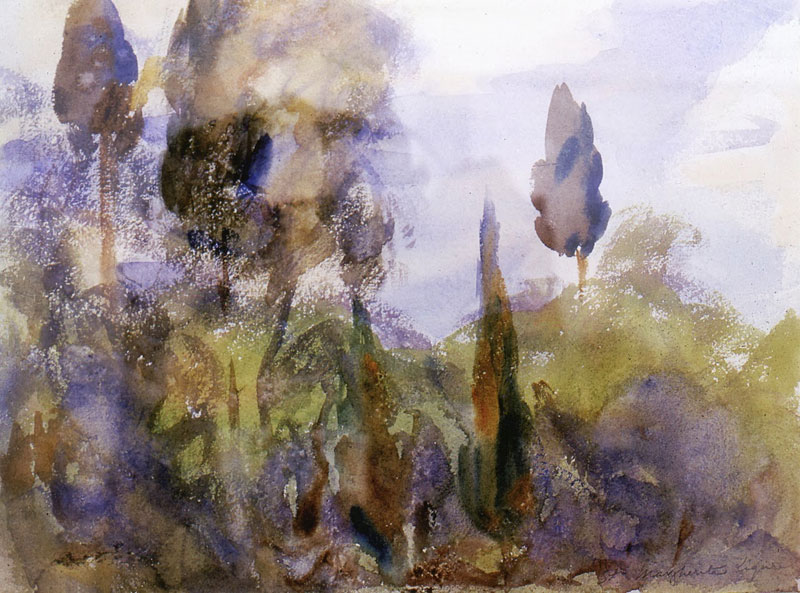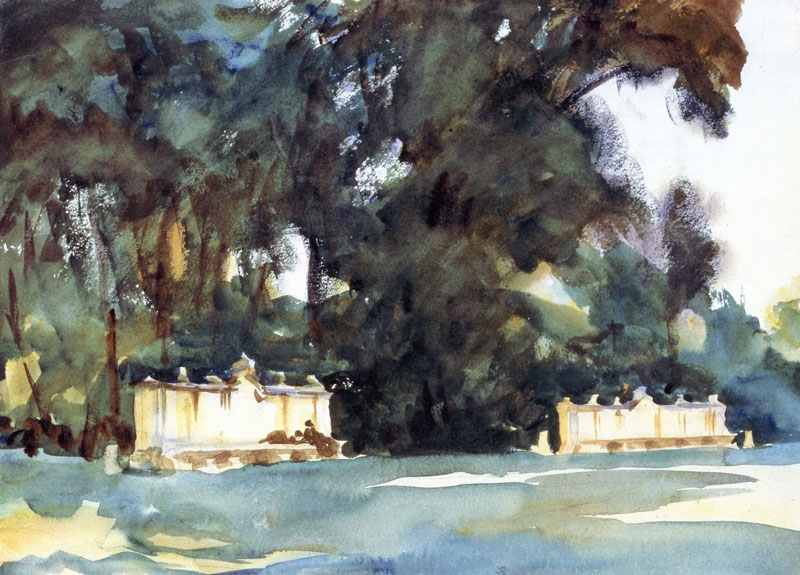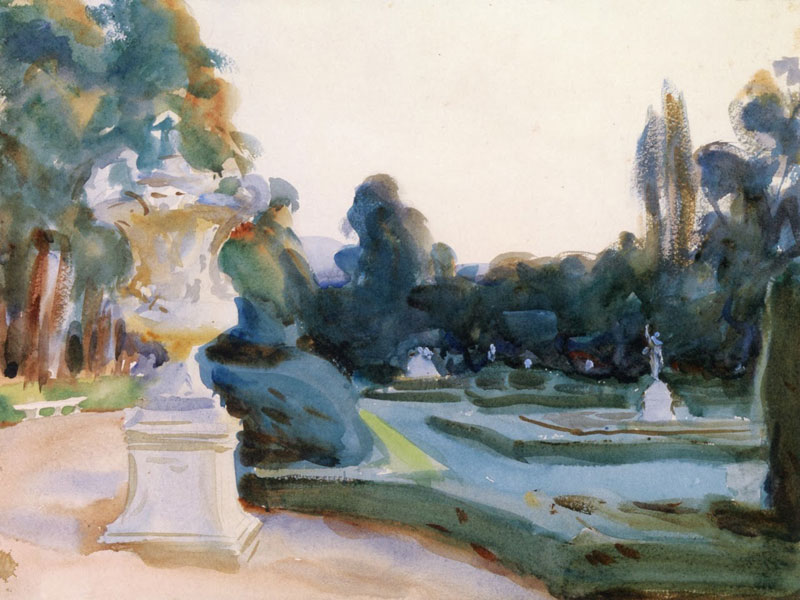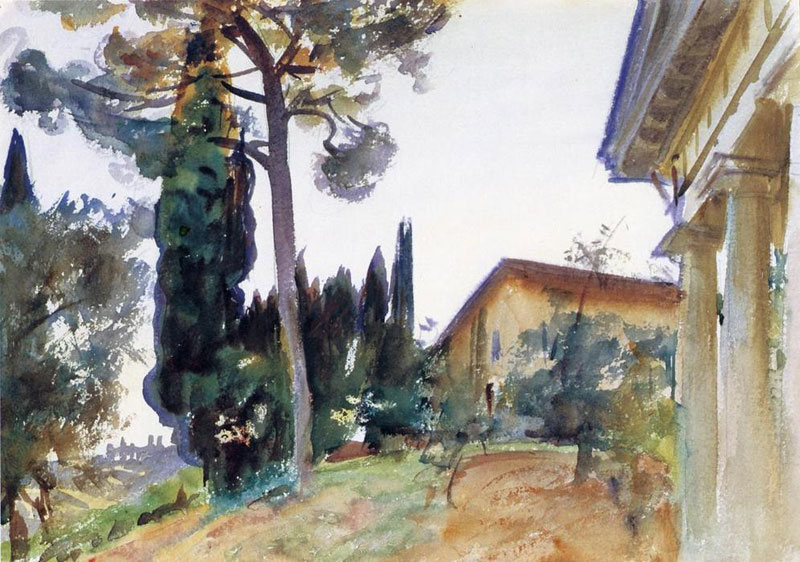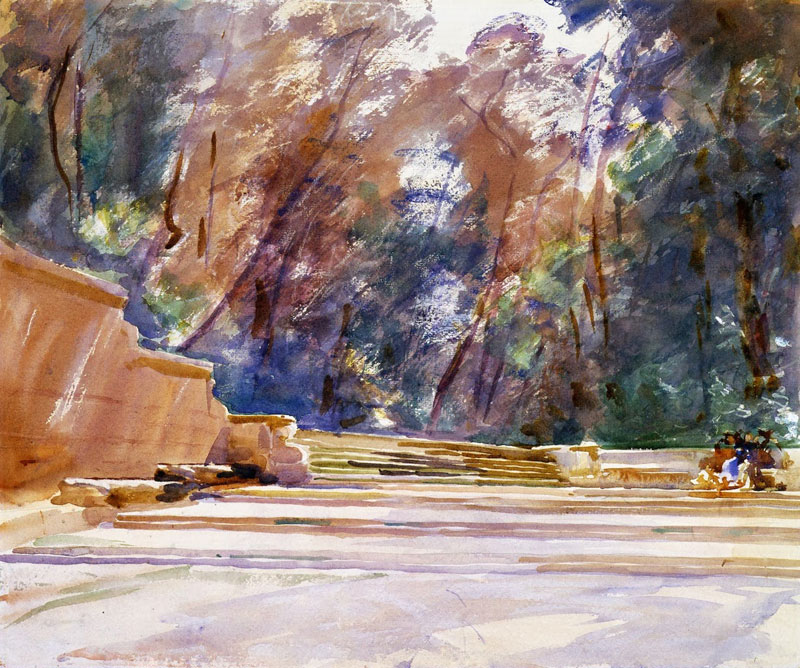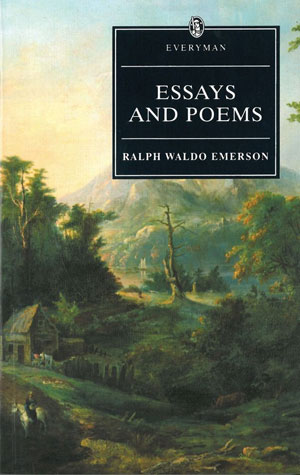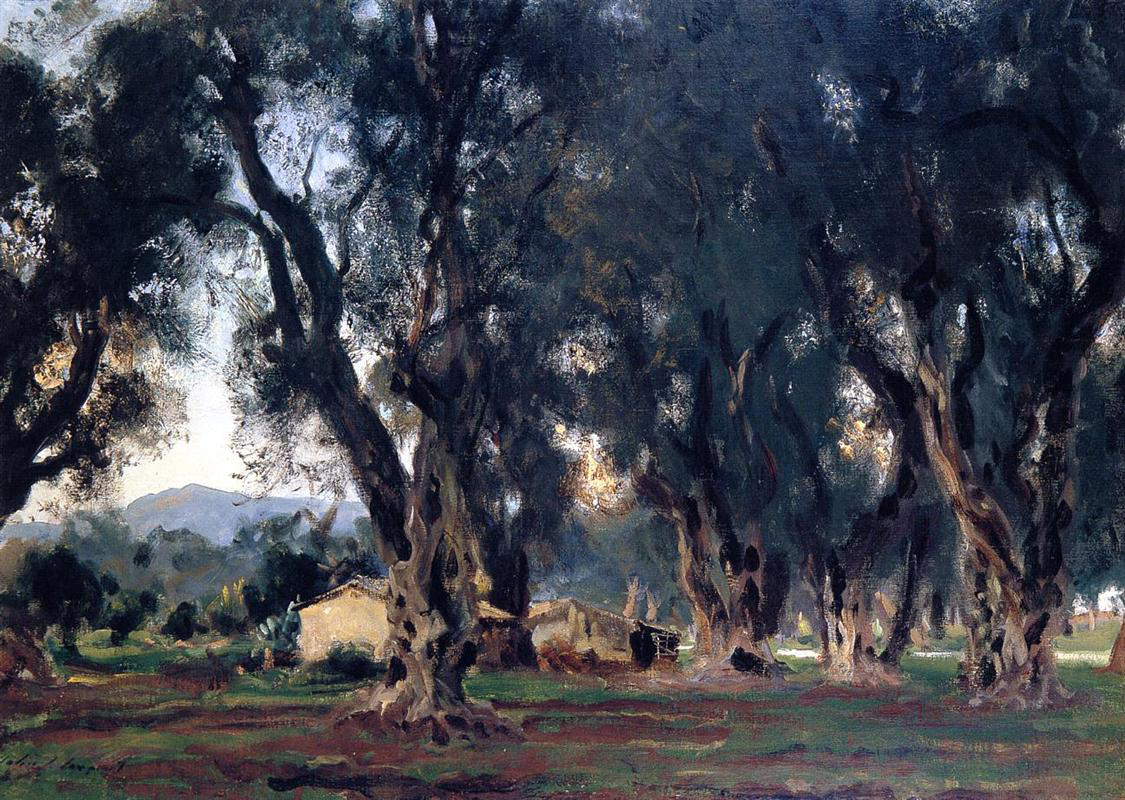
Immortal solitude
“In the woods […] a man casts off his years, as the snake his slough,
and at what period soever of life, is always a child.
In the woods, is perpetual youth.”
—Ralph Waldo Emerson, “Nature”
THE ABRUPT CHANGE in weather here in the south-east of England heralding in the new season of autumn has meant I have started yearning to travel abroad again in order to embrace the fading rays of the late summer sun—a sojourn in France or Italy beckons, even a trip to the Meteora region of Greece. Being on the road again will mean wondering, as always, how to accomplish various ongoing creative projects, which in turn has led to my pondering upon the difference between art that is produced at a desk or in a studio and that which is inspired by being en plein air.
Many writers and artists have had similar ruminations concerning the life-affirming benefits of being in nature and its effect on their art. Both Ralph Waldo Emerson (25th May 1803–27th April 1882) and John Singer Sargent (12th January 1856–14th April 1925) were advocates of producing their craft amidst the flora and fauna of existence, not least the rejuvenating and redemptive elements of being ensconced in lush woodland and verdant copse.
There is a beautiful word in German, “Waldeinsamkeit”, which literally translates as “forest loneliness”. More specifically, it is the feeling of solitude, of being joyfully alone in the woods and feeling deeply connected to the natural world. Indeed, Emerson wrote a poem by the very same name (and owned land including Walden Pond, which itself inspired Henry David Thoreau’s journal, Walden; or, Life in the Woods); similarly, Sargent produced some of his finest, light-saturated impressionistic paintings on his field trips to the European continent. And thus, herewith a confluence of artistic vision, capturing the magical and mystical potency of being in the great outdoors.
I do not count the hours I spend
In wandering by the sea;
The forest is my loyal friend,
Like God it useth me.
In plains that room for shadows make
Of skirting hills to lie,
Bound in by streams which give and take
Their colours from the sky;
Or on the mountain-crest sublime,
Or down the oaken glade,
O what have I to do with time?
For this the day was made.
Cities of mortals woe begone
Fantastic care derides,
But in the serious landscape lone
Stern benefit abides.
Sheen will tarnish, honey cloy,
And merry is only a mask of sad,
But, sober on a fund of joy,
The woods at heart are glad.
There the great Planter plants
Of fruitful worlds the grain,
And with a million spells enchants
The souls that walk in pain.
Still on the seeds of all he made
The rose of beauty burns;
Through times that wear, and forms that fade,
Immortal youth returns.
The black ducks mounting from the lake,
The pigeon in the pines,
The bittern’s boom, a desert make
Which no false art refines.
Down in yon watery nook,
Where bearded mists divide,
The gray old gods whom Chaos knew,
The sires of Nature, hide.
Aloft, in secret veins of air,
Blows the sweet breath of song,
O, few to scale those uplands dare,
Though they to all belong!
See thou bring not to field or stone
The fancies found in books;
Leave authors’ eyes, and fetch your own,
To brave the landscape’s looks.
And if, amid this dear delight,
My thoughts did home rebound,
I well might reckon it a slight
To the high cheer I found.
Oblivion here thy wisdom is,
Thy thrift, the sleep of cares;
For a proud idleness like this
Crowns all thy mean affairs.
—Ralph Waldo Emerson, “Waldeinsamkeit”
Post Notes
- Feature image: John Singer Sargent, Olive Trees at Corfu, Public Domain
- The Complete Works of Ralph Waldo Emerson
- John Devitt: Cloud Illusions
- Ralph Waldo Emerson: Nature
- Henry David Thoreau: Walking
- Michel de Montaigne: On Solitude
- Rousseau: Meditations of a Solitary Walker
- Percy Bysshe Shelley: The Cloud
- Leo Tolstoy: A Confession
- Matsuo Bashō: The Narrow Road to the Deep North
- The Culturium uses affiliate marketing links via the Amazon Associates Programme
